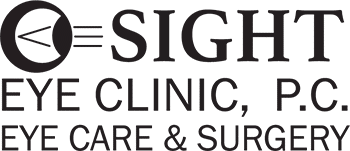Should You Use Blue Light Glasses?
Blue light glasses have been born from a world that is becoming more and more digital. Whether that means working in front of a computer all day or enjoying time browsing on tablets and phones (or both), screens are everywhere.
If you have been experiencing symptoms of eye strain such as eye irritation, dryness, watery eyes, blurred vision, and headaches, it could be the result of prolonged digital device use. And if that is the case, you may have heard of blue light glasses technology as a way to combat those effects.
But do blue light glasses work? What do they even do? We’ll take a deeper look at this treatment option and answer a few common questions here, but we are of course always happy to discuss blue light and other options with you whenever you see us.
What Are Blue Light Glasses?
In a nutshell, blue light glasses have lenses designed to block or filter out “blue light.” This is a specific wavelength of visible light that ranges from about 400-500 nanometers.
These glasses can help filter out blue light either through materials within the lenses themselves, or by a coating applied to their surfaces.
Why Block Blue Light?
As you might suspect, many electronic devices emit blue light. Computers, laptops, smartphones and tablets can all emit blue light, but it isn’t just commonly considered tech objects that can do so. Blue light can also come from certain types of general lighting.
Blue light exposure is believed to be a potential contributor to eye strain. It may also mess with our internal clocks (aka our circadian rhythms) and disrupt our sleep schedules.
So Are Blue Light Glasses Essential if I Work with Screens?
Not necessarily!
We are still learning a lot about blue light, the effects it has on people’s eyes, and when and how effectively blue light glasses work for various symptoms. So blue light glasses could be helpful for your particular situation, but we do not feel it should be your first resort to try to find relief from eye strain.
You may very well be experiencing eye strain from prolonged exposure to screens and other devices, but that doesn’t always mean that blue light is to blame for the problem! There are other reasons why your eyes might be suffering, and it can be worth exploring those avenues before investing in a pair of special lenses.
Here are a few common problems and some ways you can try to address them. The best part is that most of these are absolutely free!
You may not be blinking enough.
The more you focus and concentration on something, the fewer times you tend to blink. This can easily cause dryness and irritation. Taking small breaks every 20 minutes to look away can help, as can using eye drops.
You may be spending too much time focusing on something close to you.
Holding a firm focus on a close-up object for an extended period of time can cause eyes to become strained and contracted. Think of it a bit like trying to flex a muscle for hours on end. It doesn’t take long until you’re suffering discomfort!
A good way to try to combat this is by taking some time to focus on an object that is farther away during your every-20-minute breaks from a screen. If you can, find an object at least 20 feet away and focus on it for about 20 seconds.
Also consider just how close you are to your screen while using it! Arm’s length (or about 25 inches) is an ideal minimum distance from which to sit from your computer or other screens. Hunching closer than that can be straining your eyes more than is needed.
Other elements of your environment might be contributing to discomfort.
Even if you are following proper guidelines to reduce eye strain, you could simply be working or living with an environment that’s not best for your eyes.
Is the room dry? Is air constantly flowing across your face? You might need to adjust temperature, humidity, or fans in the area.
Do you have an old CRT display that you are using? Is your screen glossy and reflecting light back at you? It might be time to change to a newer, anti-glare display that has less flicker. At the very least, you might be able to adjust your current monitor’s brightness and refresh rate to be a little more comfortable for your eyes.
Finding the Best Solutions for Your Eye Care Needs
If the above steps don’t have much effect on your eye discomfort, we will always be more than happy to help you find a treatment plan that works.
Maybe that does mean blue light glasses could be what you need. But before we make a suggestion like that, we want to take a full look at your situation and potentially rule out other possibilities. Your prescription might need to be adjusted, for example, or there could be another underlying problem that is causing your trouble.
So what is the final word on blue light lenses? They could be helpful, but don’t run out and buy a pair before exploring all your options! Give us a call at (616) 772-2020 to schedule an appointment with us, or fill out our online contact form if you would prefer to reach us electronically instead.
